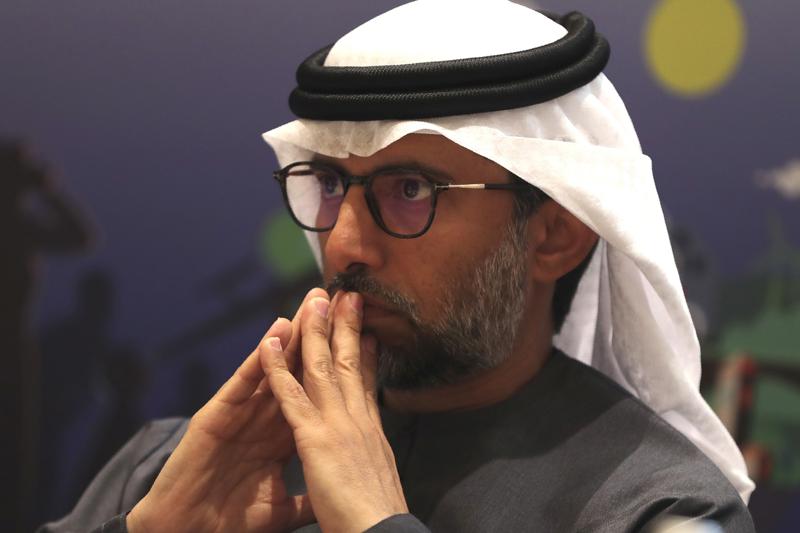Setback to OPEC
In an unexpected move, Angola has decided to part ways with the Organisation of Petroleum Exporting Countries (OPEC), sending ripples through the intricate web of global oil alliances.
In a statement on Sunday, the cartel announced that Iraq, Kuwait, Russia, Saudi Arabia and the UAE would see their limits rise.

In this Jan. 8, 2020 file photo, UAE Energy Minister Suhail al-Mazrouei attends the UAE Energy Forum 2020 in Abu Dhabi, United Arab Emirates.
OPEC and allied nations on Sunday agreed to raise the production limits imposed on five countries, ending an earlier dispute sparked by the United Arab Emirates that roiled global energy prices.
The disagreement, sparked by a demand by the UAE to increase its own production, temporarily upended an earlier meeting of the cartel. In a statement Sunday, the cartel announced that Iraq, Kuwait, Russia, Saudi Arabia and the UAE would see their limits rise.
Advertisement
“What bonds us together is way beyond what you imagine,” Saudi Energy Minister Prince Abdulaziz bin Salman said. “We differ here and there but we bond.”
Advertisement
Prince Abdulaziz declined to elaborate on how they came to that consensus, saying it would see the cartel “lose our advantage of being mysterious and clever.” But he clearly bristled at earlier reports on the dispute between Saudi Arabia, long the heavyweight of the Vienna-based cartel, and the UAE.
Prince Abdulaziz deferred at the beginning of a news conference afterward to al-Mazrouei in a sign of respect.
“The UAE is committed to this group and will always work with it and within this group to do our best to achieve the market balance and help everyone,” al-Mazrouei said.
Oil prices collapsed amid the coronavirus pandemic as demand for jet fuel and gasoline dropped amid lockdowns across the globe, briefly seeing oil futures trade in the negatives. Demand since has rebounded as vaccines, while still distributed unequally across the globe, reach arms in major world economies.
Benchmark Brent crude oil traded around $73 a barrel Friday.
Advertisement